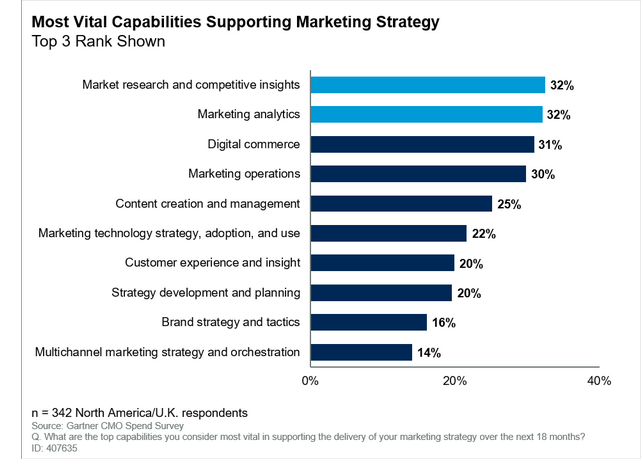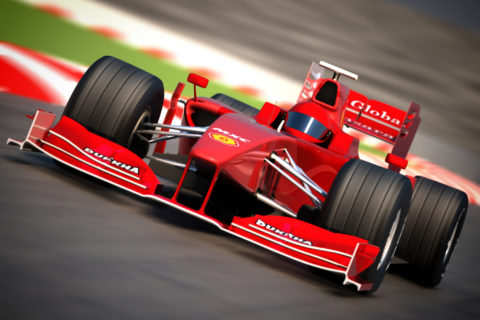The CMO mandate to drive growth shows no sign of letting up, with good reason. No one role has the combination of customer insight, tech savvy and creativity needed to innovate on the customer experience.
This rise in status does not always bring an equal increase in resources, however. The current picture from the annual Gartner CMO Spend Survey-2020, which surveyed more than 340 marketing decision makers from North America and the U.K., shows a slight decline in top-line marketing spend to 10.5% of revenue, a level not seen since 2014.
Gartner’s previous CMO Spend Surveys show budgets in North America and the U.K. have been hovering at just over 11% of company revenue. In fact, when you look back across the previous five CMO Spend Surveys, the mean average budget is anchored at 11%. However, marketers express optimism that they will continue to have what they need to realise their strategic goals.
Marketing leaders highlight a number of critical priorities for the delivery of their strategic marketing goals over the next 18 months. The following capabilities rose to the top: market research and competitive insights (named as top-three priority by 32% of respondents); marketing analytics (32%); digital commerce (31%); and marketing operations (30%).
Analytics and insights
Analytics and insights have appeared on the CMO priority list for years, with good reason — 76% of marketing leaders say they use data and analytics to drive key decisions. Yet marketing organisations also struggle to evolve their data capabilities. Continued investment in technology and data talent is not optional for those with ambitions for their data.

One of the data challenges many marketers must overcome is a bias for volume metrics over value metrics. Volume metrics track performance or efficiency. Value metrics, in contrast, assess the quality of an interaction or its impact on the customer relationship and on profitability. Only together do they give marketers necessary insight into customer engagement and loyalty. Analytics investments should take that into account and move toward a more balanced mix of performance data.
Digital commerce
Alongside the commitment to data, there’s also a need to deliver revenue. This accounts for the prominence of digital commerce in the minds of marketing leaders. Traditionally, digital commerce capabilities was seen as the domain of consumer-oriented brands. However, this year’s survey finds that CMOs across industries and business models value digital commerce, ranking it just behind marketing analytics among respondents from B2B services firms. This reflects the moves many B2B brands have made lately, shifting from a pureplay B2B to embrace the opportunities a B2B2C model offers.
Marketing operations
Marketing operations — arguably the least glamorous function within the marketing organisation — is enjoying a revival. A range of strategic capabilities are increasingly collected under the control of a discrete operations function. No longer is ops limited to finance and budgeting. Increasingly, it’s overseeing digital project management and talent development. This ascent up the marketer’s priority list signals a strategic focus on improving the business management at marketing’s core.
How CMOs spend their budgets sends a clear signal about where they’re placing future bets. CMOs’ financial commitment to analytics and insights, digital commerce and marketing operations makes clear its intention to maintain its reign at the center of business transformation. To deliver results, Gartner recommends that CMOs should:
- Prioritise analytics activities based on the value they deliver to the business and the amount of effort required. For example, use automation to cut back on time-intensive, low-value tasks such as manual scorecards.
- Establish a function, such as marketing operations manager, to drive operational excellence in planning and execution across the span of the organisation.


